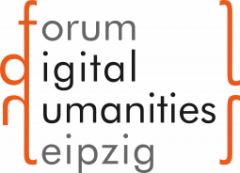„Culture & Technology“ – European Summer Universtiy in Digital Humanities
The European Summer University in Digital Humanities 2021 will be held from 03.08. – 13.08.2021.
Although we are aware that the pandemic may hold still many challenges in store for us all, we are planning to meet with everybody in person in Leipzig. Should this not be possible we will put a plan B in place which could either mean having a hybrid event (mixture of on-site and online participants, teachers and lecturers) or, if the worst comes to the worst, a fully online one. We will just have to see what the next months bring.
Important dates for the application were published on April 2.
You can find the list of workshops here, and the list of lectures here.
The programme of the Summer University usually consisted of: intensive Workshops (36 h) / 2 Hands-on sessions (4 h) / 2 Teaser Sessions (4 h) / 6 Lectures (12 h) / 4 Project Presentation Sessions (8 h) / 1 Round Table Discussion (2 h) / 1 Poster Session (2 h) / 2 Workshop Results Presentations (4 h) / Visits to museums, memorable places, libraries (10 h) / Community building activities (excursion to lake, communal coffee breaks, lunches and dinners). The Workload corresponds to 6 ECTS-Points.
The Summer University is directed at 60 participants from all over Europe and beyond. It wants to bring together (doctoral) students, young scholars and academics from the Arts and Humanities, Library Sciences, Social Sciences, the Arts and Engineering and Computer Sciences as equal partners to an interdisciplinary exchange of knowledge and experience in a multilingual and multicultural context and thus create the conditions for future project-based co-operations.
The Leipzig Summer University is special because it not only seeks to offer a space for the discussion and acquisition of new knowledge, skills and competences in those computer technologies which play a central role in Humanities Computing and which determine every day more and more the work done in the Humanities and Cultural Sciences, as well as in publishing, libraries, and archives etc., but because it tries to integrate also linguistics with the Digital Humanities, which pose questions about the consequences and implications of the application of computational methods and tools to cultural artefacts of all kinds.
It is special furthermore because it consciously aims at confronting the so-called Gender Divide, i.e. the under-representation of women in the domain of Information and Communication Technologies (ICT) in Germany, Europe and many parts of the world, by relying on the challenges that the Humanities with their complex data and their wealth of women represent for Computer Science and Engineering and the further development of the latter, on the overcoming of the borders between the so-called hard and soft sciences and on the integration of Humanities, Computer Science and Engineering.

